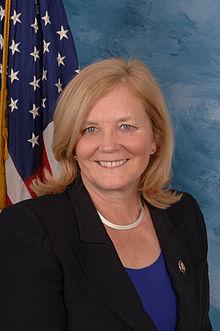Chellie Pingree: Just label it
It was a case of David and Goliath. Back in 2003, the multi-billion dollar company Monsanto picked a fight with Maine-based Oakhurst Dairy over the label on its milk bottles. Responding to the wishes of its customers, Oakhurst labels included a pledge from its farmers against using artificial growth hormones to increase the milk production of their cows.
Monsanto, which manufactured the hormone, argued that the pledge implied that its product had negative health effects. Oakhurst countered that it was simply giving customers the information they wanted to make informed purchasing decisions. In an important victory for transparency, Oakhurst won the case.
Well, Monsanto is at it again, joined this time by other agri-business conglomerates and food-manufacturing giants in opposing the labeling of genetically modified (GMO) food. A coalition of these companies has backed a bill in Congress—commonly referred to as the Deny Americans the Right to Know (DARK) Act—that would prohibit states from adopting GMO labeling laws and even nullify ones that have already passed, including in Maine.
Like with the case against Oakhurst’s labels, these companies think it will be harder to sell GMO food if consumers know that it’s GMO food.
Genetic engineering has developed rapidly over the last 20 years. It goes well beyond what farmers have done for centuries in naturally breeding plants for the best qualities. These changes happen in the lab at the genetic level by turning off certain genes or even inserting genes from unrelated species to create a desired trait.
For instance, genetic material was taken from fish to make a line of tomatoes more frost resistant. Other GMO plants have been developed to resist herbicides, repel pests, and withstand extreme weather. Their use has become so widespread that about 90% of the corn grown in the U.S.—used in everything from your breakfast cereal to sweetener to livestock feed—has been genetically engineered.
Companies like Monsanto say GMO crops are absolutely necessary on today’s farms and that engineered food presents no additional health risks. But many concerns have been raised. Most studies of how GMO products affect humans have been funded by the companies that manufacture them, and none have focused on long-term impacts. On top of that, GMO crops have contributed to skyrocketing herbicide use, hard-to-kill “superweeds,” the contamination of organic fields, and a lack of diversification in our nation’s food supply.
Many consumers do not want to feed their families GMO food; others have no problem with it. But one area where almost all people agree is around transparency. Poll after poll shows that about 90% of Americans support the labeling of GMO food and ingredients. Worldwide, 64 countries require GMO labeling and some, including China, ban the importation of GMO products.
I’m proud that Maine recently passed a law — signed by the Governor — that would require GMO labeling when a critical mass of other states in the region has adopted similar standards. The DARK Act places this law at risk, and would keep other states from acting in their residents’ interest where the federal government has failed to respond. Instead, the act would leave the labeling decision up to manufacturers — with consumers left to wonder what their food is made of.
I feel strongly that this information should be transparent so people can make an educated decision about what they think is best for their family. That is why I have cosponsored legislation requiring GMO labels at a federal level. Whether it’s hormone-free milk or GMO corn, I think people have a right to know.


























